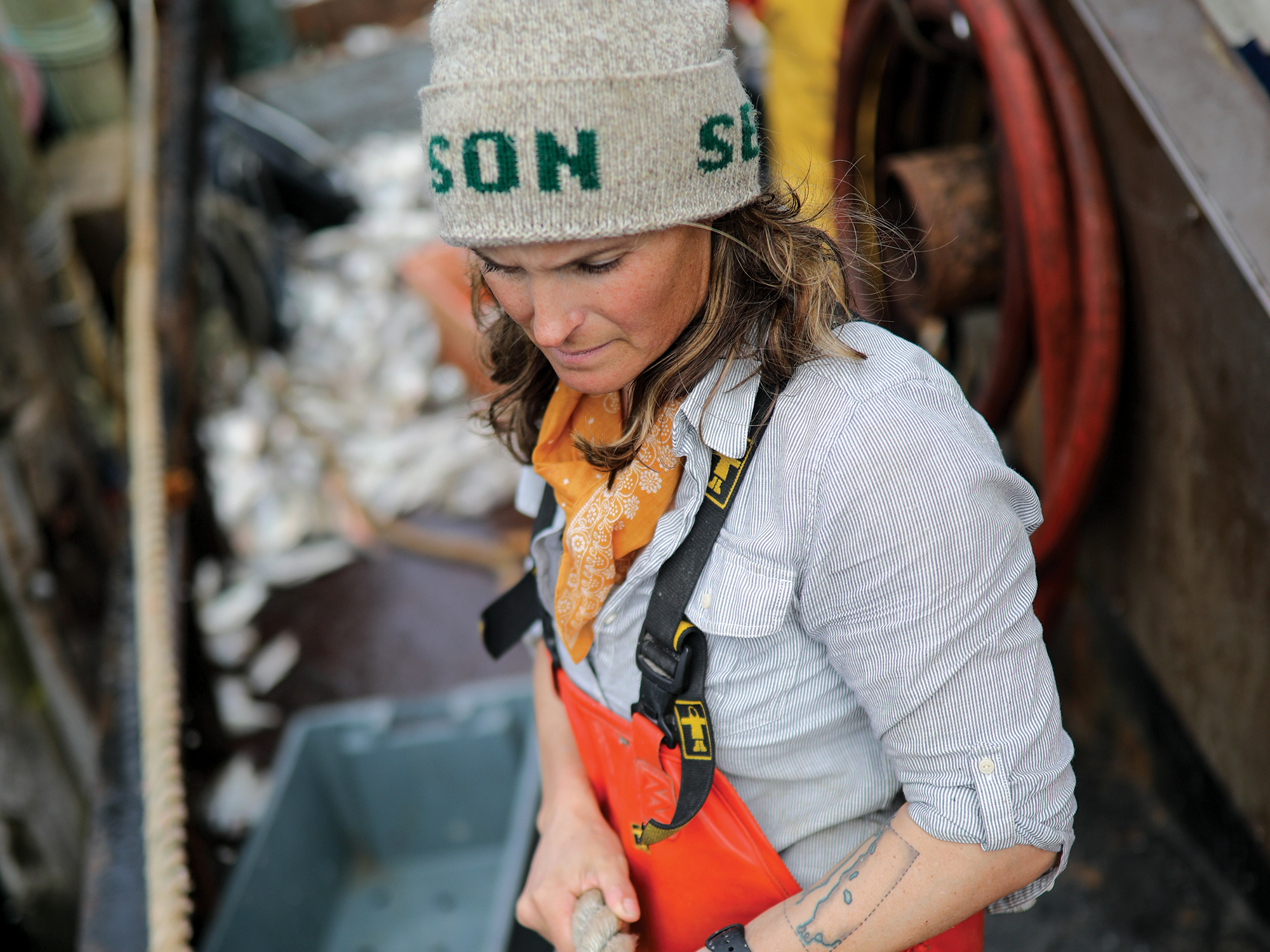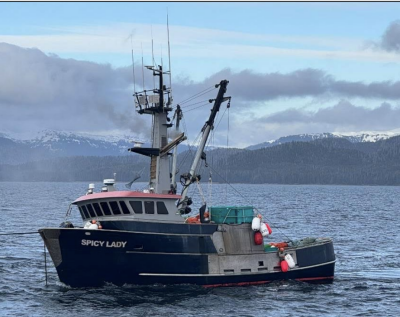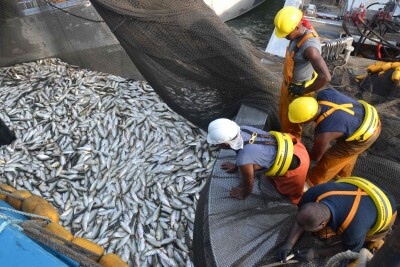Like many fishermen before her, it only took one day out on the water for Corey Wheeler Forrest to know that’s where she wanted to be from then on.
“I actually ended up on the boat because they were short-handed one day,” she says. “And once I started, I was hooked; there was no way I was not going fishing.”

Corey Wheeler Forrest. Maaike Bernstrom photo.
Wheeler Forrest is a third-generation trap fisherman, fish dealer and all-around badass working on her family’s boat, the Maria Mendonsa, with her father and brother. Trap fishing is a unique fishery to Rhode Island and only a few boats are left fishing in this manner. It’s a historic fishing method, existing for hundreds of years. Wheeler Forrest describes it as a “cool, sustainable and passive fishery.”
“We are licensed to set in the same spots every year off the coast of Little Compton and Newport,” she says. “If the fish come to us, we catch them. If they don’t, we don’t.”
She likens the method to a giant aquarium, held in place by 26 500- to 900-pound anchors. The fish — primarily scup — are funneled into the head of the trap, from which they cannot escape.
“Everything is alive, so anything we can’t keep is thrown right back into the water to swim away,” she says. “It’s really labor and equipment intensive, which is probably why not too many people still do this.”
Before Wheeler Forrest started fishing, she went to college, traveled and worked for other people. She hopes her two children might do the same.
“I love for them to fish and work with me and learn about the family business,” she says. “But at this age, I’m more focused on them learning a good work ethic and seeing what hard work looks like. I also think it’s important to see what else is out there. And if they decide to come back to fishing, it’s their choice.”
The busiest time of year for Wheeler Forrest and her family is the spring, when every day is a little crazy. A lot of volume is caught in the month of May, and Corey is up at 4 a.m.
“I touch base with my buyers before we head out; the boat leaves at 6 a.m.,” she says. “We might haul one to three traps, depending on how much fish my buyers are looking for. We are back at the dock a few hours later and spend the rest of the day off-loading, sorting, boxing, icing and shipping the fish. The Fulton Fish Market gets the fish by that night. We work some long days, but it’s rewarding.”







